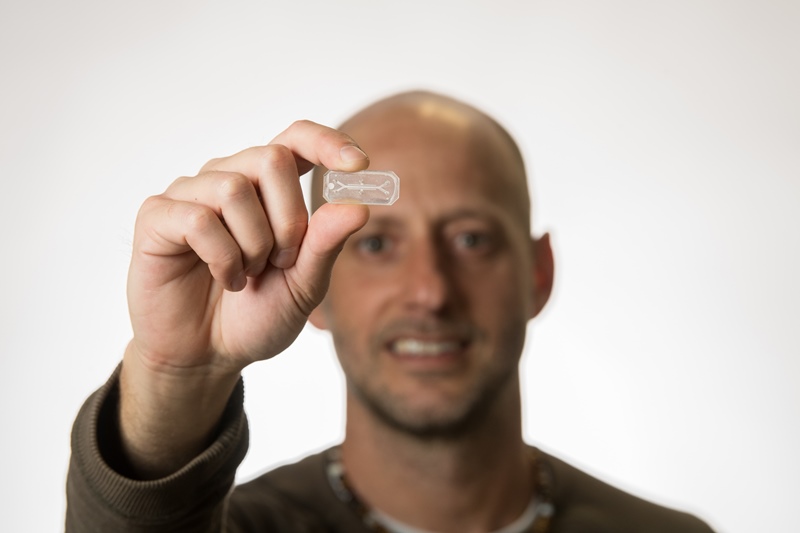Scientists can't make a living copy of your brain outside your body. That's the stuff of science fiction. But in a new study, they duplicated a critical brain structure, the blood-brain barrier (BBB) that functioned as it would in the individual who donated the cells to make it. Their achievement — detailed in a study published in the peer-reviewed journal Cell Stem Cell — provides a new way to make discoveries about brain disorders and, potentially, predict which drugs will work best for an individual patient.

The blood-brain barrier acts as a gatekeeper by blocking toxins and other foreign substances in the bloodstream from entering brain tissue and damaging it. It also can prevent potentially therapeutic drugs from reaching the brain. Neurological disorders such as Multiple Sclerosis, Epileptic Disorders Alzheimer disease and Huntington disease, which collectively affect millions of people, have been linked to a defective blood-brain barriers.
For their study, a team co-chaired by Dr. Gad Vatine, of BGU's Regenerative Medicine and Stem Cell (RMSC) Research Center and the Department of Physiology and Cell Biology and by Clive N Svendsen, Ph.D of Cedars-Sinai Medical Center in Los Angeles , genetically genetically manipulated blood cells collected from individual's into stem cells (known as induced pluripotent stem cells), which can produce any type of cell in our bodies. They used these special cells to make neurons, blood-vessel cells and support cells that together make up the blood-brain barrier. The team then placed the various types of cells inside microfluidic chips, which mimicked the body's environment and allowed the cells to interact with each other and with blood.
The living cells soon formed a functioning unit of a blood-brain barrier that acted much like it does in the body, including blocking entry of certain drugs. Significantly, when this this blood-brain barrier was derived from cells of patients with Allan-Herndon-Dudley syndrome, a rare congenital neurological disorder, or from Huntington disease patients, the barrier malfunctioned in the same way that it does in patients with these diseases.
"By combining patient-specific stem cells and organ-on-chip technology, we generated a personalized model of the human blood brain-barrier (BBB). BBB-on-Chips generated from several individuals demonstrated inter-individual variability in BBB functions. Thus, this approach allows the prediction of the best-suited brain drug in a personalized manner," says Dr. Vatine .
Although scientists have created blood-brain barriers outside the body before, the investigators said they believe this is the first time such a structure has been created from induced pluripotent stem cells that were derived from a patient, matched the patient's DNA and displayed a characteristic defect of the patient's disease.
The study's findings create dramatic new possibilities for precision medicine, Dr. Vatine added.
"This is of particular importance for neurological diseases like epilepsy or schizophrenia, in which several FDA-approved drugs are available, but current treatment selections are largely based on trial and error. We're aiming to understand each individual case, in order to meet the unique needs of each individual patient," he said.
The project was supported by the Israel Science Foundation, the California Institute for Regenerative Medicine and the Sherman Family Foundation.
Media Coverage:
JPost
The Jewish Press
Medical Xpress
Israel21C